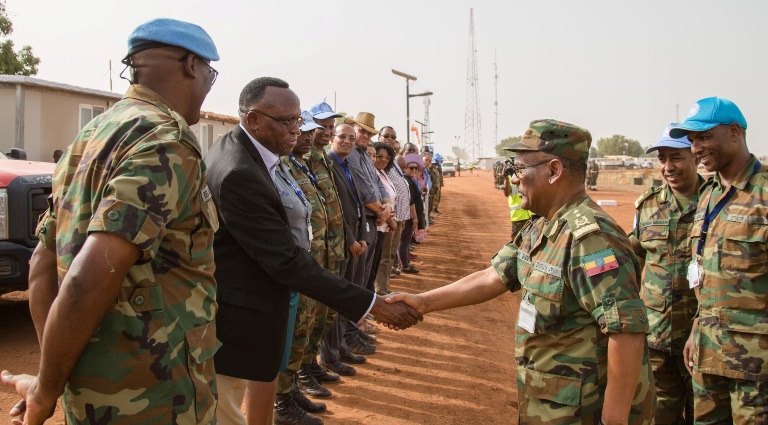EU envoys to Khartoum to visit Abyei: official

April 3, 2018 (KHARTOUM) – Head of the Sudanese committee for the administration of Abyei area Hassan Ali Nimir said they are making arrangements for the visit of the European Union (EU) ambassadors to Khartoum, to the disputed area.
He told the semi-official Sudan Media Center (SMC) that he would meet with the EU envoys on Wednesday to discuss the current security, humanitarian and services situation in Abyei.
Nimir pointed out that a joint delegation from the United States Agency for International Development (USAID) and the U.S. embassies in Khartoum and Juba had visited Abyei last week.
He said the delegation sought to get first-hand information on the peaceful co-existence and provision of services for the residents who returned to their original villages.
According to Nimir, the U.S. delegation met with the traditional leaders in north and south of Abyei and had been briefed on the work of the national and foreign aid groups as well as the role played by the UN Interim Security Force for Abyei (UNISFA) to maintain security in the region.
Ownership of Abyei, a border region disputed by Sudan and South Sudan, remained contentious after the world’s youngest nation split from Sudan in 2011.
There is no joint administration between Sudan and South Sudan, as the Ngok Dinka refuse the formation of Abyei Area Administration and the Legislative Council. Instead, they call to hold a referendum without the Sudanese pastoralist Misseriya.
Now there are two committees one for the Misseriya appointed by the Sudanese government and another for the Ngok Dinka appointed by Juba government.
On 27 June 2011, the Security Council, by its resolution 1990, responded to the urgent situation in Abyei by establishing the UNISFA.
UNISFA’s establishment came after Sudan’s government and the Sudan People’s Liberation Movement (SPLM) reached an agreement in Addis Ababa, Ethiopia, to demilitarise Abyei and let Ethiopian troops monitor the area.
The Comprehensive Peace Agreement (CPA) provides that the contested territory remains part of the north until the organisation of a referendum determines its fate.
The difference over who will participate in the referendum prevents the two countries from holding the agreed referendum.
However, the Dinka Ngok organised a unilateral referendum from 27to 29 October 2013 to say they want to join the Republic of South Sudan.
Khartoum, Juba, the African Union and the international community refused to recognise the outcome of the vote.
(ST)
